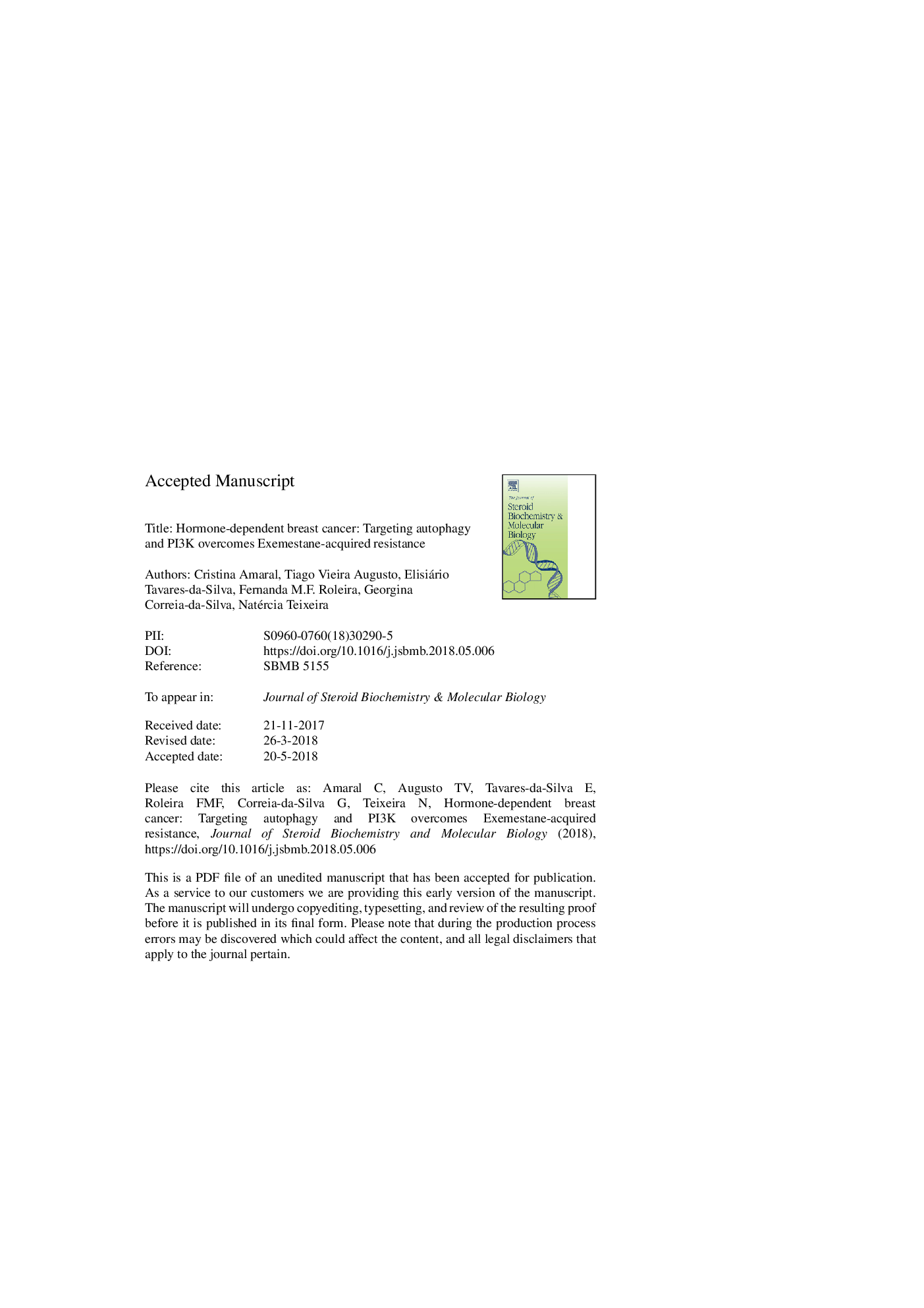| Article ID | Journal | Published Year | Pages | File Type |
|---|---|---|---|---|
| 8961904 | The Journal of Steroid Biochemistry and Molecular Biology | 2018 | 32 Pages |
Abstract
The leading cause of cancer death in women around the world is breast cancer. The aromatase inhibitors (AIs) are considered - as first-line treatment for estrogen receptor-positive (ER+) breast tumors, in postmenopausal women. Exemestane (Exe) is a powerful steroidal AI, however, despite its therapeutic success, Exe-acquired resistance may occur leading to tumor relapse. Our group previously demonstrated that autophagy acts as a pro-survival process in Exe-induced cell death of ER+ sensitive breast cancer cells. In this work, the role of autophagy and its relationship with the PI3K/AKT/mTOR pathway in Exe-acquired resistance was explored. In that way, the mechanism behind the effects of the combination of Exe with pan-PI3K, or autophagic inhibitors, was studied in a long-term estrogen deprived ER+ breast cancer cell line (LTEDaro cells). Our results indicate that Exe induces autophagy as a cytoprotective mechanism linked to acquired resistance. Moreover, it was demonstrated that by inhibiting autophagy and/or PI3K pathway it is possible to revert Exe-resistance through apoptosis promotion, disruption of cell cycle, and inhibition of cell survival pathways. This work provides new insights into the mechanisms involved in Exe-acquired resistance, pointing autophagy as an attractive therapeutic target to surpass it. Thus, it highlights new targets that together with aromatase inhibition may improve ER+ breast cancer therapy, overcoming AIs-acquired resistance.
Keywords
Related Topics
Life Sciences
Biochemistry, Genetics and Molecular Biology
Biochemistry
Authors
Cristina Amaral, Tiago Vieira Augusto, Elisiário Tavares-da-Silva, Fernanda M.F. Roleira, Georgina Correia-da-Silva, Natércia Teixeira,
